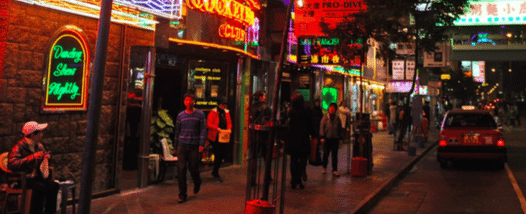In Hong Kong, selling sex is not illegal if one person operates from a private apartment. However, working in isolation places sex workers in a vulnerable situation at risk of robbery, physical assault and rape.
As one sex worker, Queen, told Amnesty International: “I have never reported any crimes such as rape because I’m afraid I’ll get charged with soliciting.”
Not only do sex workers in Hong Kong receive little protection from the police but they are sometimes deliberately targeted by them.
Amnesty International’s research shows that police officers often misuse their powers to set up and punish sex workers through entrapment, extortion and coercion. Undercover police officers are permitted to receive certain sexual services from sex workers in the course of their work to secure evidence. Amnesty International also recorded instances of the police, or individuals claiming to be the police, telling sex workers they could avoid legal sanctions by giving them money or “free” sex.
Transgender sex workers are often subject to particularly abusive police practices including intrusive and humiliating full-body searches carried out by male officers on transgender women.
“There’s a lot of groping and mockery,” reported one lawyer who has represented transgender sex workers in Hong Kong.
After their arrest, transgender women sex workers can be sent to male detention centers and special units for detainees with mental illnesses.

